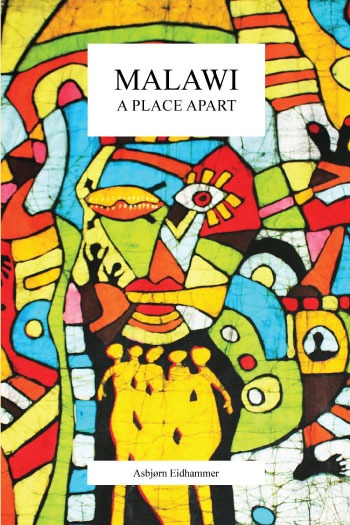Our Projects
Kupeza Chambo! – the marketplace for all things Malawian!

‘Kupeza Chambo!’ is set to revolutionise publishing in Malawi. It is a platform that will innovate technology to increase access to the Malawi story, including access to the historical manuscripts at the National Archives of Malawi, and other well researched content authored by ‘Logos – Open culture’, and other producers. For an affordable fee, users will get access to digitised historical manuscripts. Our goal is to not produce content that shows the rich cultural heritage of Malawi but also help in increasing their access and reach, in terms of price, accessibility, and language.
Malawi, A Place Apart

Malawi, A Place Apart by Asbjørn Eidhammer
‘It is the stranger who comes with a sharper blade’, claims one Malawian adage. But stranger Asbjørn Eidhammer is not. He worked tirelessly with Malawians for more than eight years as Norwegian ambassador to Malawi during politically difficult times. Malawi – A Place Apart is a unique and welcome update of the story of the nation examined from the point of view of a highly observant outsider. His subtle exposure of the sometimes hidden economic mismanagement is particularly poignant when people are crying out for open societies everywhere.’ – Professor Jack Mapanje, author of Of Chameleons and Gods.
Our first book publication, it is available in bookshops across Malawi and selected ones across the world. It is also available on Amazon UK, Amazon USA and others
Asbjørn Eidhammer is a Norwegian political scientist, activist, and diplomat. He served as the Norwegian Ambassador to Malawi from 1999 to 2004 and from 2011 to 2014. Between his missions to Malawi, he was Director of Evaluation at the Norwegian Agency for Development Cooperation for five years. From 1981 to 1984, he was President of the Norwegian Council for Southern Africa, Norway’s anti-apartheid movement. He has published books in Norwegian about politics and development in Africa and Malawi.
An African Uprising: The story of Chilembwe and the 1915 rebellion against imperial Britain

Professor John McCracken, during the filming of the Chilembwe project.
Logline/Train: An American-trained Malawian Baptist minister tries to free Africans from Imperial British rule, with disastrous consequences.
The documentary film, inspired by the seminal work Independent African: Chilembwe and the uprising of 1915 (1958) by Professor Emeritus George Shepperson, will draw on archival film and photographs, and interviews with historians. Other scenes will be re-enacted.
Topic Summary
As one of the early African uprisings against imperial Britain, the topic is important because it occupies a critical juncture in the history of empire building. As Shepperson has commented, it “represents the first stirrings of Independent Africans, not on the old tribal kind of reaction to the ways of the white man but on a new kind of response to European culture”. Inequitable access to land, and issues of racism are still pertinent topics for the African on the world landscape today. The uprising also represents a broader manifestation of the plight of African-Americans. As someone educated in Virginia at the end of the 19th century, Chilembwe imported into the country guerrilla tactics employed by historical figures like Nat Turner, and John Brown of Harper’s Ferry.
Retelling this story is needed now because even 50 years or more after the main wave of independence across the continent, countries like Malawi remain marred by growing inequality and continue to grapple with questions of identity, belonging and destiny. Part of our tragedy is that we are ‘historically’ uninformed or misinformed, and thanks to legacies of our leaders, we lack a critical populace. The film will help in addressing some of these challenges. And as a marginal man, “between two worlds of the traditional tribal society and the promising new forms of economic, political and social forms brought European rule” (Shepperson pp. 166), Chilembwe makes for a fascinating character through which these themes play out. The uprising also resonates more broadly with international questions of injustice in the age of #FeesMustFall and #BlackLivesMatter movements.
For a synopsis of the film, click here.
